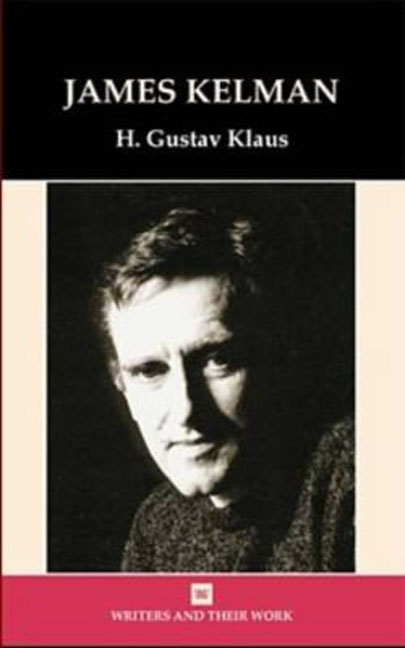Book contents
- Frontmatter
- Contents
- Acknowledgements
- Biographical Outline
- References
- 1 Introduction: ‘Fucking Realism’
- 2 Footloose in Country and City: The Early Short Stories
- 3 Unsettlingly Settled: The Busconductor Hines and A Chancer
- 4 Authority Flouted: The Plays and Essays
- 5 Contacts, Tensions, Emotions: Greyhound for Breakfast and The Burn
- 6 Under Surveillance, Resisting: A Disaffection; How Late it Was, How Late and Translated Accounts
- 7 Postscript: You Have to be Careful in the Land of the Free
- Notes
- Bibliography
- Index
4 - Authority Flouted: The Plays and Essays
- Frontmatter
- Contents
- Acknowledgements
- Biographical Outline
- References
- 1 Introduction: ‘Fucking Realism’
- 2 Footloose in Country and City: The Early Short Stories
- 3 Unsettlingly Settled: The Busconductor Hines and A Chancer
- 4 Authority Flouted: The Plays and Essays
- 5 Contacts, Tensions, Emotions: Greyhound for Breakfast and The Burn
- 6 Under Surveillance, Resisting: A Disaffection; How Late it Was, How Late and Translated Accounts
- 7 Postscript: You Have to be Careful in the Land of the Free
- Notes
- Bibliography
- Index
Summary
As early as 1978 Kelman had a play broadcast by BBC Radio Scotland entitled Hardie and Baird: The Last Days. Given the author's fine ear for dialogue and the importance of voice in his fiction, the attraction of the dramatic form comes as no surprise. Yet the technical demands of radio drama or the theatre are naturally very different from those of fiction. Impossible here, for example, to retain the merging of narrative and character voice that dominates the stories and novels. Nor does the minimalism of dramatic event in the fiction easily lend itself to stage adaptation, even though there are instances of a similar paucity of action in post-1945 drama.
Of the three plays collected in Hardie and Baird & Other Plays (1991), one is based on a short story and treats a similar footloose incident, but the other two are more overtly political works. In the Night thematizes harassment by the secret police, which foreshadows the later novel Translated Accounts, while the title play is an excursion into Scotland's radical history, which has no equivalent whatsoever in the fiction. To look for a common denominator of these three plays is to risk forcing the material into an artificial frame, but this much can be said: the principal characters lead lives that are on the edge. The three streetwalkers in The Busker live from hand to mouth. The unmarried couple in In the Night are involved in left-wing political activities, and the title figures of Hardie and Baird are incarcerated rebels awaiting execution. In one way or another they have all fallen foul of authority.
A spin-off from ‘Old Holborn’, one of the Lean Tales, The Busker (1985), reworks and extends the same material. The story is told from the perspective of a vagrant who approaches a street guitarist with the evident hope of taking a cut. He gives the impression of improving the earnings by doing the collecting, but the musician sees through his game and does not appreciate his aggressive accosting of the pedestrians. Still, the first-person narrator who claims not to have eaten anything for days feels that he is due something, and he manages to scrounge a pound, half the takings, off the generous busker. Then he disappears with an easy conscience.
- Type
- Chapter
- Information
- James Kelman , pp. 45 - 62Publisher: Liverpool University PressPrint publication year: 2004

